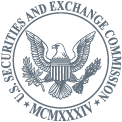MULTINATIONALS: SEC, Big 4 Accountants Resolve China Clash
Bottom line: The SEC’s settlement with the Big 4 over their audits for US-listed Chinese firms is a positive step for everyone, and should be followed by a broader document sharing agreement between the US and China.

After more than 3 years of bickering, the US securities regulator has finally resolved a dispute with the Big 4 accounting firms over the way they handle their audits of New York-listed Chinese firms. The sudden settlement is a welcome development not only for both sides in the dispute, but also for the dozens of US-listed Chinese companies that employ the Big 4 as their official accountants. But all that said, the US Securities and Exchange Commission (SEC) must still take one more step and sign a more comprehensive agreement with its Chinese counterpart to ensure it has access to the documents it needs when investigating New York-listed Chinese companies.
I’ve followed this story for quite a while now, dating back to 2011 when a financial services firm called Longtop Financial was first accused of accounting irregularities. Those allegations later led to Longtop’s collapse, and sparked a broader investor confidence crisis in Chinese accounting standards, as short sellers and the SEC itself leveled similar claims against several other firms.
In the months that followed, the SEC opened its own investigation into Longtop, but was thwarted in its efforts after the company’s auditor, the China branch of Big 4 accounting firm Deloitte, refused to hand over related documents. Deloitte claimed such a move would violate Chinese laws, since all the documents were based in China where the SEC had no jurisdiction. That started a stalemate that now finally looks close to resolution.
Fast forward nearly 4 years, when the SEC has just announced its landmark deal that looks quite good for everyone. Under the settlement, the SEC has levied a relatively modest fine of $500,000 against each of the Big 4, Deloitte, PricewaterhouseCoopers, KPMG and Ernst & Young. (English article; Chinese article) The agreement also requires the 4 to admit that their China units didn’t provide documents request by the SEC before 2012.
More importantly, the settlement lays out a code of behavior for the Big 4 when the SEC requests their documents in the future, and the firms can be suspended from doing audits for 6 months if their efforts are deemed insufficient. The reports don’t provide details of that code of behavior, but the SEC will probably expect the Big 4 to promptly provide any China-based documents it needs for investigations involving the dozens of US-listed Chinese names.
The list of affected firms is quite large and varied, ranging from Internet giants like Alibaba (NYSE: BABA) and Baidu (Nasdaq: BIDU), down to much smaller companies whose shares are thinly traded and unknown to most people. In crafting the settlement, which gives the Big 4 relatively light financial punishment, the SEC was undoubtedly trying to avoid too much chaos from more severe punishment. Such chaos could have easily occurred if the SEC had carried through with earlier threats to suspend one or more of the Big 4 accounting firms from auditing US-listed Chinese companies.
The settlement looks good for everyone, since most of China’s major US-listed companies use Big 4 firms as their auditors and would have faced major disruptions if they suddenly had to find replacements. The Big 4 themselves are obviously happy, since they can continue to conduct work in the lucrative field. The SEC is probably happiest of all, since it should now be able to access most or all of the documents it wants, and has sent an important message that the Big 4 should apply the same standards for their China audits as they do for US-based firms.
The last remaining piece to completely resolve this situation will be a comprehensive document-sharing agreement between the SEC and its Chinese counterpart, the China Securities Regulatory Commission (CSRC). The 2 regulators reached a landmark agreement in 2013 that gave the SEC access to China-based documents for cases involving suspected wrongdoing in the past. (previous post) Now they need to extend that to include all cases where the SEC suspects possible wrongdoing, including in the present, which should provide a welcome comprehensive resolution for the issue.
Related posts:
